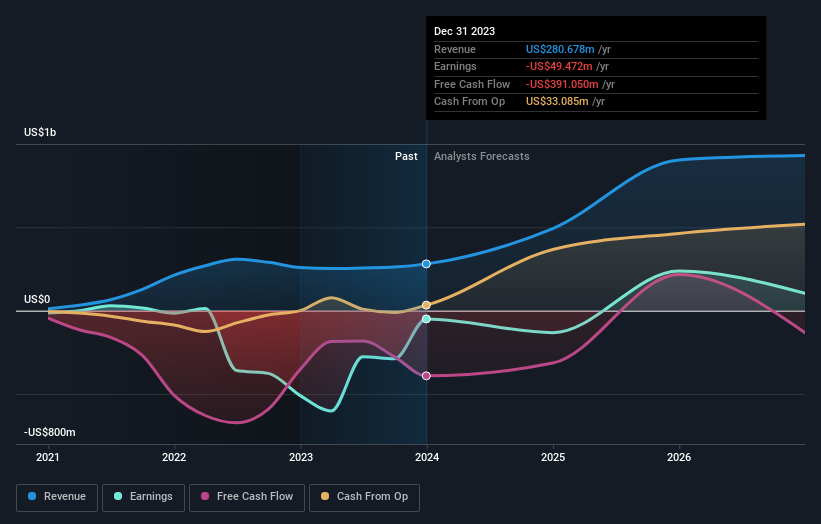Institutions profited after Riot Platforms, Inc.'s (NASDAQ:RIOT) market cap rose US$175m last week but retail investors profited the most
Key Insights
Significant control over Riot Platforms by retail investors implies that the general public has more power to influence management and governance-related decisions
The top 25 shareholders own 40% of the company
Every investor in Riot Platforms, Inc. (NASDAQ:RIOT) should be aware of the most powerful shareholder groups. And the group that holds the biggest piece of the pie are retail investors with 51% ownership. Put another way, the group faces the maximum upside potential (or downside risk).
Following a 6.1% increase in the stock price last week, retail investors profited the most, but institutions who own 40% stock also stood to gain from the increase.
Let's take a closer look to see what the different types of shareholders can tell us about Riot Platforms.
Check out our latest analysis for Riot Platforms
What Does The Institutional Ownership Tell Us About Riot Platforms?
Institutions typically measure themselves against a benchmark when reporting to their own investors, so they often become more enthusiastic about a stock once it's included in a major index. We would expect most companies to have some institutions on the register, especially if they are growing.
As you can see, institutional investors have a fair amount of stake in Riot Platforms. This can indicate that the company has a certain degree of credibility in the investment community. However, it is best to be wary of relying on the supposed validation that comes with institutional investors. They too, get it wrong sometimes. If multiple institutions change their view on a stock at the same time, you could see the share price drop fast. It's therefore worth looking at Riot Platforms' earnings history below. Of course, the future is what really matters.
We note that hedge funds don't have a meaningful investment in Riot Platforms. Our data shows that The Vanguard Group, Inc. is the largest shareholder with 8.5% of shares outstanding. In comparison, the second and third largest shareholders hold about 6.1% and 3.2% of the stock. Jason Les, who is the third-largest shareholder, also happens to hold the title of Member of the Board of Directors.
Our studies suggest that the top 25 shareholders collectively control less than half of the company's shares, meaning that the company's shares are widely disseminated and there is no dominant shareholder.
While studying institutional ownership for a company can add value to your research, it is also a good practice to research analyst recommendations to get a deeper understand of a stock's expected performance. There are a reasonable number of analysts covering the stock, so it might be useful to find out their aggregate view on the future.
Insider Ownership Of Riot Platforms
The definition of an insider can differ slightly between different countries, but members of the board of directors always count. Company management run the business, but the CEO will answer to the board, even if he or she is a member of it.
Insider ownership is positive when it signals leadership are thinking like the true owners of the company. However, high insider ownership can also give immense power to a small group within the company. This can be negative in some circumstances.
We can report that insiders do own shares in Riot Platforms, Inc.. It is a pretty big company, so it is generally a positive to see some potentially meaningful alignment. In this case, they own around US$244m worth of shares (at current prices). If you would like to explore the question of insider alignment, you can click here to see if insiders have been buying or selling.
General Public Ownership
The general public -- including retail investors -- own 51% of Riot Platforms. With this amount of ownership, retail investors can collectively play a role in decisions that affect shareholder returns, such as dividend policies and the appointment of directors. They can also exercise the power to vote on acquisitions or mergers that may not improve profitability.
Next Steps:
While it is well worth considering the different groups that own a company, there are other factors that are even more important. To that end, you should learn about the 3 warning signs we've spotted with Riot Platforms (including 1 which is potentially serious) .
If you would prefer discover what analysts are predicting in terms of future growth, do not miss this free report on analyst forecasts.
NB: Figures in this article are calculated using data from the last twelve months, which refer to the 12-month period ending on the last date of the month the financial statement is dated. This may not be consistent with full year annual report figures.
Have feedback on this article? Concerned about the content? Get in touch with us directly. Alternatively, email editorial-team (at) simplywallst.com.
This article by Simply Wall St is general in nature. We provide commentary based on historical data and analyst forecasts only using an unbiased methodology and our articles are not intended to be financial advice. It does not constitute a recommendation to buy or sell any stock, and does not take account of your objectives, or your financial situation. We aim to bring you long-term focused analysis driven by fundamental data. Note that our analysis may not factor in the latest price-sensitive company announcements or qualitative material. Simply Wall St has no position in any stocks mentioned.

 Yahoo Finance
Yahoo Finance 

